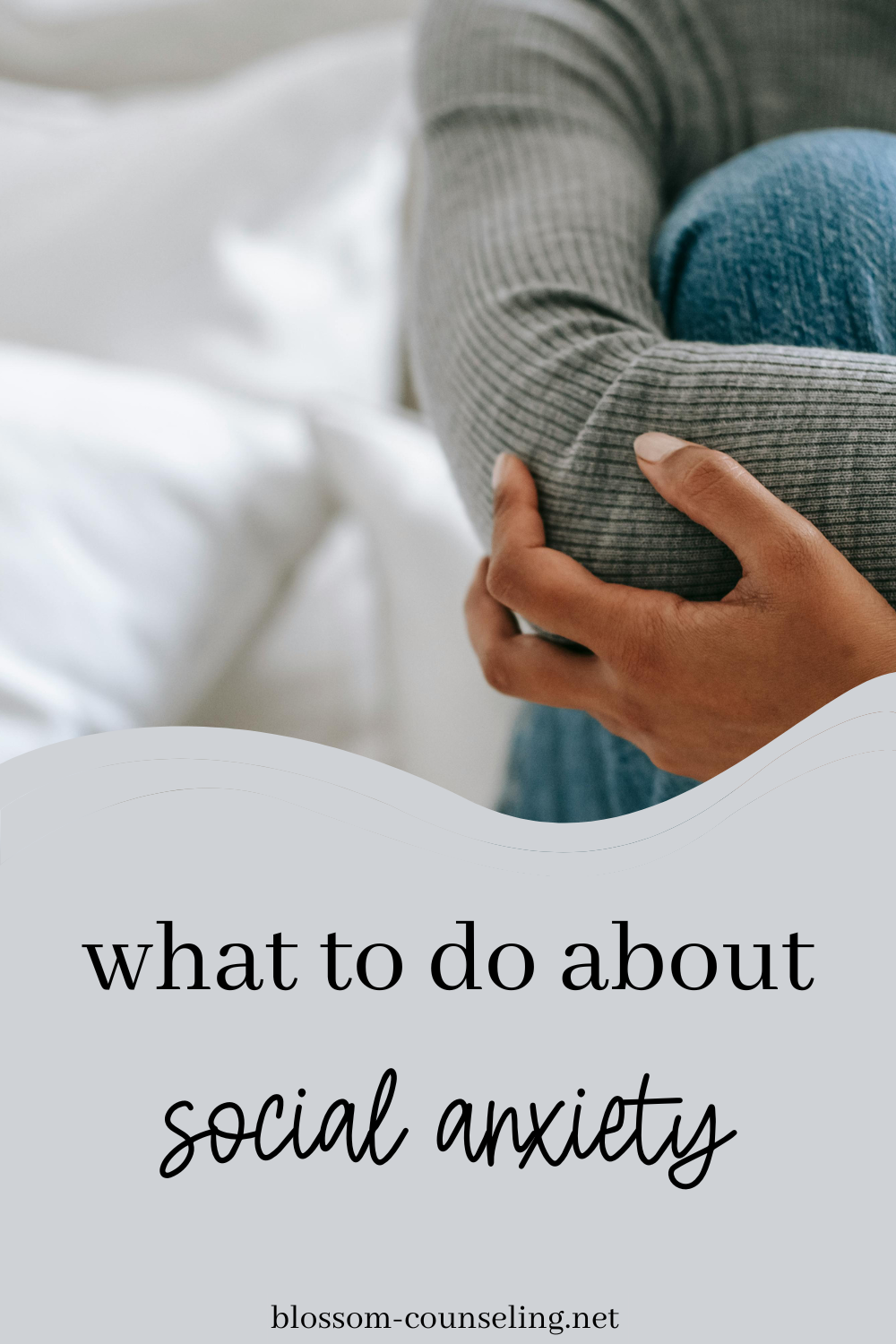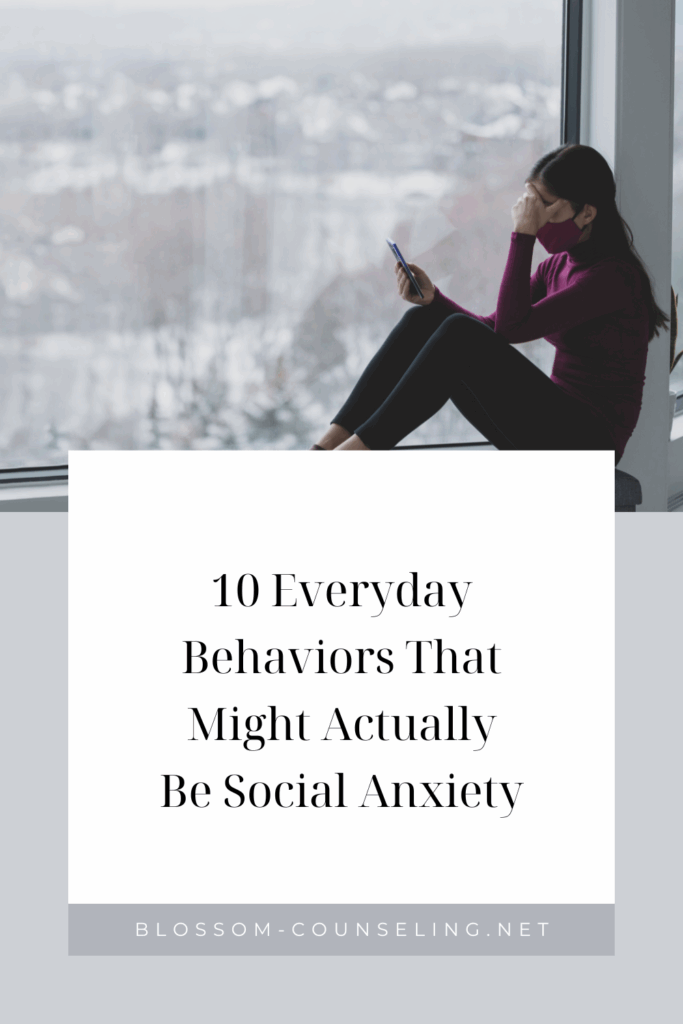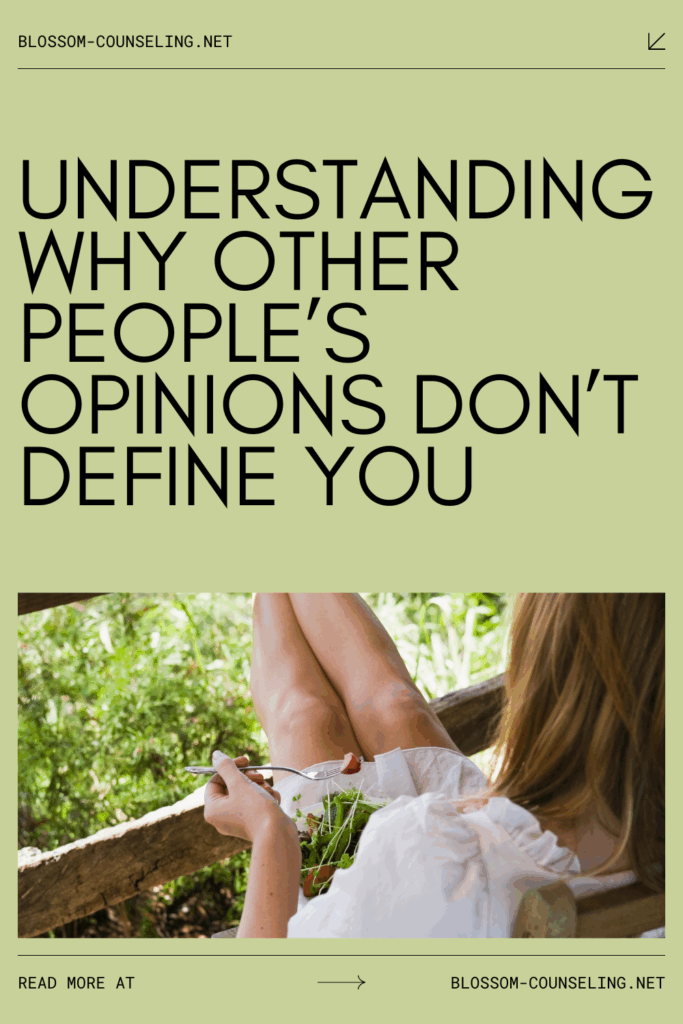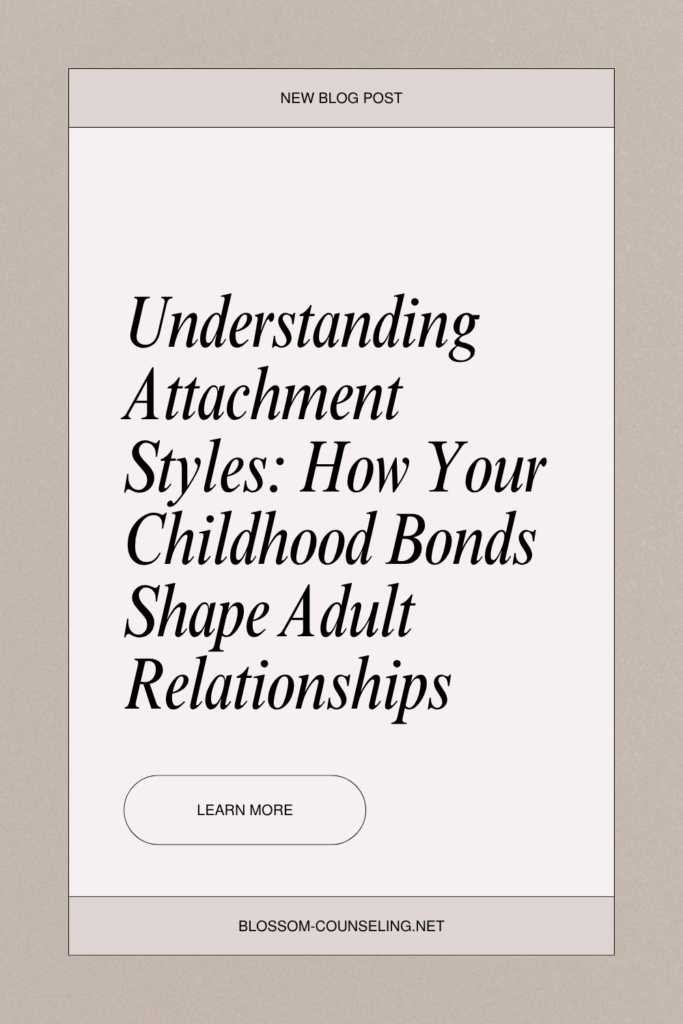
Are you or someone you love avoiding social situations or events due to fear or anxiety? If so, you are not alone! Social anxiety disorder affects millions of people all over the world. However, it may sometimes take years before those suffering seek treatment. Many individuals suffer in silence, while Social Anxiety invokes havoc on their lives by missing out on possible career opportunities, romantic relationships or other enjoyable moments. For those suffering, the intense feelings of social anxiety take over, as they want to avoid those symptoms at all costs. However, there is hope! There are many effective treatments for social anxiety– including Cognitive Behavior Therapy and Mindfulness. Integrating techniques learned from these methods into your life can help you cope with Social Anxiety Disorder, and not let it overtake your life.
Social Anxiety is more intense than someone who may be described as just shy or quiet. It is important to note the difference between feeling shy in social situations vs. suffering from Social Anxiety Disorder. Here are some identifiers of Social Anxiety Disorder (also referred to as Social Phobia): anxiety, nervousness or fear of being judged in any type of social situation. Some people with Social Anxiety Disorder have also reported worry about appearing visibly anxious in social situations. In other words, they are worried about others noticing that they are blushing, shaking or talking at a fast pace. You may also experience physical symptoms such as: nausea, excessive sweating, rapid breathing/heart rate or even full-blown panic attacks. The effects of Social Anxiety Disorder are much more intense than shyness.
Although many individuals suffering recognize that their fear is unreasonable or invalid, they still feel powerless against the overwhelming fear of being judged or looking “stupid” by others. It is extremely difficult to get out of your own head when you are suffering from Social Anxiety Disorder. It is helpful to connect with others to discuss how you are feeling. It is important to reach out to seek treatment from a professional.
Our team of compassionate therapists is here to help you find the support you need. We believe in a holistic approach, treating your mind, body, and spirit. With a blend of traditional and alternative therapies, we tailor your experience to meet your unique needs. At Blossom, we create a non-judgmental space where you can be your authentic self. Our goal is to empower you, amplify your strengths, and help you create lasting change. Together, we’ll navigate life’s challenges and help you bloom, grow, blossom! You deserve to become the best version of you.




